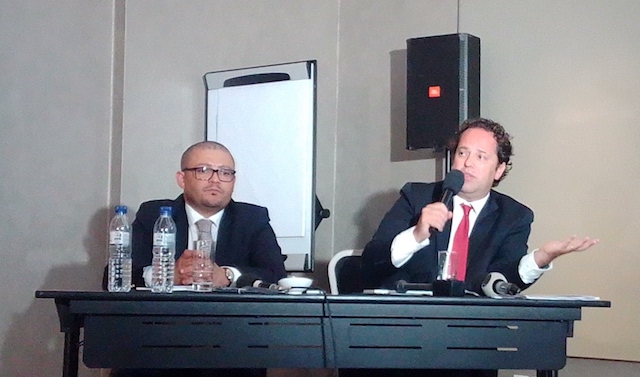Trade and industry in spotlight as Mozambique strengthens cooperation with China
Restructuring state-owned enterprises: “Top priority area” for Mozambican economy – IMF

[Photo: Adérito Caldeira / A Verdade]
Ari Aisen, the International Monetary Fund (IMF) representative in Mozambique, has said that the restructuring of the state business sector “is a top priority area for the country’s economy”, saying that much has been done by the Filipe Nyusi government but “more needs to be done”.
Except for Mozambique Railways, Mozambique Electricity and the National Hydrocarbon Company, the remaining ten public companies are in technical bankruptcy. The same holds for nine out of the 15 companies in which the state holds a 50% or more shareholding – Transmarítima, Sociedade Notícias, SEMOC, Petromoc, Medimoc, TMcel, LAM, Farmac and Ematum.
Presenting the IMF’s Sub-Saharan Africa and Mozambique Regional Economic Outlook in Maputo on Monday, Aisen said the restructuring and governance of the state business sector should be one of the priority areas for Filipe Nyusi’s government in the term starting in January.
“The government has been working, but more needs to be done because we still do not have a final answer to good reorganisation in this sector. Obviously there are many strategies to follow; one may be better than the other, but it will depend a lot on the programme the government wants to implement and the details are important: which company should stay, which company to merge, which company to privatise,” Aisen declared.
“Part of the problem is a legacy of very high debt, no matter how much better some of these companies are operating. It is difficult to service the burden of such a high, inherited debt. But, somehow, decisions will have to be made about how to support these companies, because they are a tax liability,” the IMF representative pointed out.
“Eventually the government may be affected by the performance of these companies. There is a link with the financial system, so the contagion of these companies’ operational capacity, the ability to pay their debts, could be compromised. I would say this is a top priority area for the country’s economy,” Aisen warned.
In addition to restructuring the state business sector, the IMF has recommended six other priority areas for the economy: “Firstly, to ensure that public expenditure can be focused on poverty reduction. It is not possible, in a country like Mozambique, that [the burden of] any fiscal consolidation which may be carried out falls on social expenditure.”
“Governance and transparency, (…) Strengthening of gas institutions, (…) fiscal consolidation, (…) continuing the process of restructuring the public debt, (…) and bank legislation in Mozambique, banking law, foreign exchange law and the organic law itself dating from 1992 which needs to be modernised,” Aisen concluded.
By Adérito Caldeira












Leave a Reply
Be the First to Comment!
You must be logged in to post a comment.
You must be logged in to post a comment.